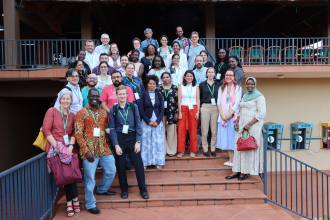
Ethiopian stakeholders conducted a workshop on accelerating Ethiopia’s energy transition
A national workshop was conducted in Ethiopia on June 3, 2024, on the initiative of the Accelerated Partnership for Renewables in Africa (APRA). This country-led alliance of governments and…

“The others can learn from our mistakes”
Benson Mlambo Mwakina is the Director of Renewable Energy at the Ministry of Energy & Petroleum in Kenya. He also manages cross-cutting energy assignments in the country and the region and…

WinEED leads survey that will shed light on the career progression of environmental economists
Mintewab Bezabih is a Research Associate funded by EfD at the Department of Forest and Natural Resources Department at North Carolina University since March 2023. She is a member of the Women in…

The Inclusive Green Economy Program welcomes new fellows in Tanzania
EfD’s Inclusive Green Economy (IGE) program in Tanzania had an inaugural meeting in Morogoro for the newly recruited IGE fellows on May 15-16, 2024. Following this event, intensive training sessions…

May's newletter is out!
Check your mailbox! (Check the spam filter too!) If you haven't subscribed yet, just fill in your e-mail address in the subscribe box at the bottom of this page, so you don't miss any news from us…
Fisheries Management for Food Security and Poverty Eradication: The case of small-scale fisheries in Vietnam
Research questions:
What is the contribution of small-scale fisheries in Vietnam in promoting food security and alleviating poverty among fishing households?
|
What potential do fisheries management measures have to reduce poverty and improve food security?
Key Messages |
Public opinion on carbon pricing and revenue uses in East Africa
Foreword by EBA
The ongoing climate crisis calls for radically reduced emissions of greenhouse gases. Although low- and lower-middle-income countries may have small or minimal climate footprints compared to richer countries, reductions are key also in those countries, not least since future consumption is likely to increase with increasing economic growth and population.